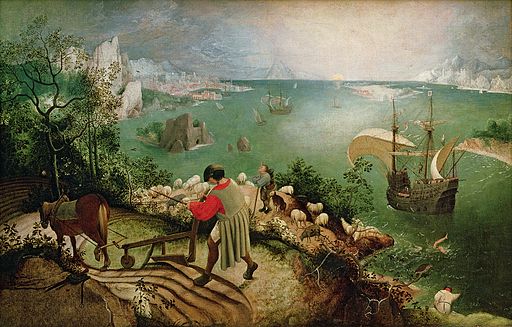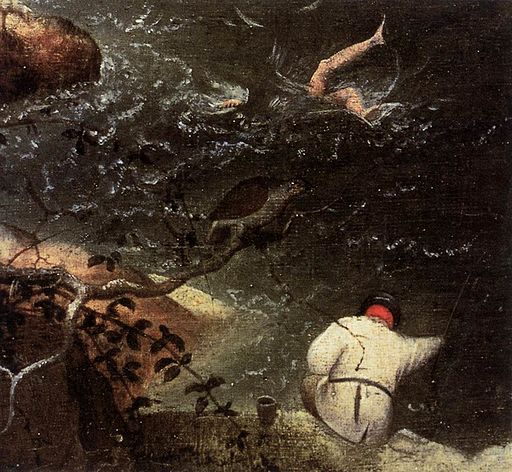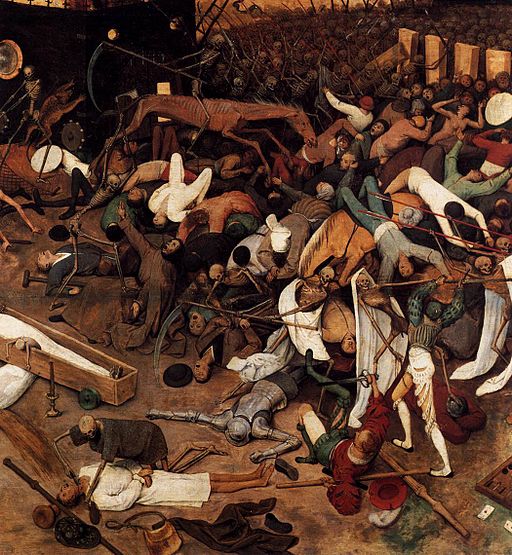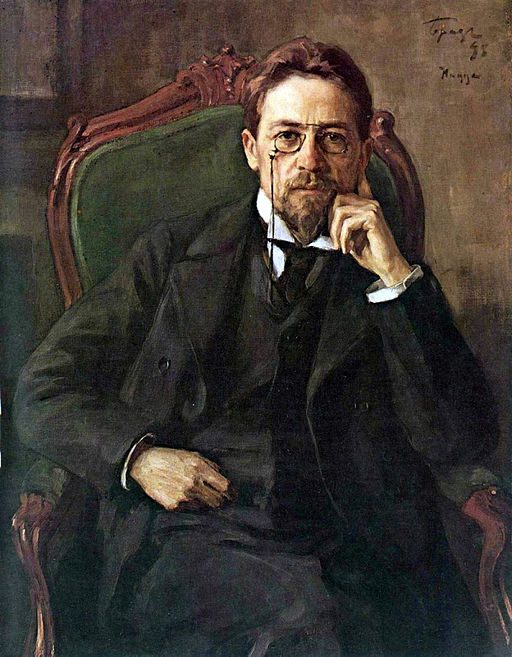Sylvia R. Karasu
New York, United States
“About suffering they were never wrong / The Old Masters…how it takes place / While someone else is eating or opening a window or just walking dully along.”1 So wrote W.H. Auden in his poem Musée des Beaux Arts in response to his viewing the painting Landscape with the Fall of Icarus (c. 1558) by Flemish artist Pieter Bruegel the Elder.2
 |
|
| Landscape with the Fall of Icarus, circa 1558, by Pieter Bruegel the Elder Royal Museums of Fine Arts of Belgium, Brussels. |
Bruegel’s inspiration derives from the myth of Daedalus and Icarus, poignantly depicted in book VIII of the Metamorphoses3 by the Roman poet Ovid. As a participant in the humanist circles in Antwerp, considered the artistic and commercial center of the Netherlands at the time, Bruegel would have been familiar with Ovid’s classic.4 The myth is about the inability of a father to protect his son both from his own hubris (e.g. attempting to fly like the gods) and the hubris of his adventurous son (e.g. failing to heed his father’s warning.) As Daedalus and Icarus are about to set flight, Daedalus cautions Icarus to take a middle course, neither flying too high where the blistering sun can melt the artificial wings he has fastened together with wax nor too low where the ocean’s moisture can weigh them down. The myth has been immortalized throughout our cultural history.5,6,7
In Ovid’s version, there is a ploughman, a fisherman, and a shepherd who each sees the pair and stands “amazed.” Ovid makes no mention, though, of their response to Icarus’s tragic fall, and perhaps we are made to assume, like both Bruegel and Auden, that these men, engaged in their own work—ploughing, fishing, shepherding—don’t respond to it. Auden continues, for example, “…how everything turns away / Quite leisurely from the disaster; the ploughman may have heard the splash, the forsaken cry / But for him it was not an important failure….”1
Bruegel chooses to focus on the apparent inattention of the ploughman, the fisherman, and the shepherd. He emphasizes the “immeasurable expanse” of the landscape at the expense of the people who are “but a fraction of the painting’s surface” and emphasizes “man’s insignificance” compared to the world as a whole.8 Stokstad4 notices the “half-hidden corpse in the underbrush” of the painting and quotes the Flemish proverb, ‘No plow stops at the death of any man.” These are people “whose goal is day-to-day survival.”4 They avoid indulging in the pain of others. They behave as though oblivious to the events around them because they attribute the events and hence any suffering, to forces beyond and external to their control. In other words, they can escape involvement. There is no escape, though, in some of Bruegel’s later paintings, such as The Triumph of Death (c. 1562), described as “not for the squeamish” and ranked “among the most terrifying paintings of the age” where Bruegel focuses on human tragedy on a grand scale.9
 |
|
| Detail from Landscape with the Fall of Icarus. |
In Ovid’s poem, the forces beyond and external emanate from the gods: Ovid tells us specifically that Daedalus and Icarus when first seen in flight are assumed to be gods3: in classical mythology, humans are not to be concerned with the affairs or even the suffering of the gods. The “iconography of suffering,” says Susan Sontag, most often represented in art originates in either divine or human wrath.10 As the myth continues, Ovid discloses that his Daedalus experiences the catastrophic loss of his son because of an act of divine wrath and retribution: Daedalus was punished for envying his young, clever nephew and for attempting to kill him while claiming that the boy had merely fallen accidentally. Goddess Minerva, though, catches the falling boy and enables him to metamorphose into a partridge with a fear of heights.3 In Bruegel’s Landscape, the partridge hovers on a low-hanging branch over the fallen Icarus in the corner of the painting.2 He is a voyeur, the observer-witness who does not look away.
There can be both shame and shock, writes Sontag,10 in observing the tragedy of others. Compassion is “an unstable emotion”10 and as a result, people can develop what she calls a “moral or emotional anesthesia” to tragedy.10 They can become cynical or even apathetic, especially when they believe there is nothing that can be done. This condition is clearly evident in the situation of “something amazing/a boy falling out of the sky.” as noted by Auden.1 With indifference to the lives of others, as well, people can fail to sense danger or sense it inaccurately.11 They can either literally close their eyes or divert their attention away defensively as a protection from their own anxieties and remain preoccupied with their own lives. Says Holocaust survivor Elie Wiesel, “It is so much easier to look away from victims…it is, after all, awkward, troublesome, to be involved in another’s pain and despair…Indifference reduces the other to an abstraction.”12
Dr. Paul Kalanithi, suffering from incurable and ultimately terminal metastatic lung cancer just as he is beginning a promising career as a neurosurgeon, writes that one’s own suffering can make a person “callous to the obvious suffering of another.”13 We can develop what I have called compassion failure, an indifference that occurs in the context of our own preoccupations and vulnerabilities.
 |
| Detail from The Triumph of Death, circa 1562, by Pieter Bruegel the Elder, Prado Museum, Madrid. |
This theme of compassion failure pervades the short work by physician Anton Chekhov,“A Boring Story: From an Old Man’s Notes14: Nikolai Stepanovich, a medical professor emeritus, describes himself as “a highly distinguished man of great gifts and unquestionable usefulness.” At age 62, though, this professor is depressed and clearly suffering from his own preoccupations and vulnerabilities. He tells us that he has tic douloureux, false teeth, a bald head, poor memory with a decline in his mental agility, and incapacitating insomnia. With the “fervor of the hypochondriac,” the professor peruses therapeutic texts and self-medicates with a different medication daily.14 Nothing holds his interest or gives him pleasure, including the sight of his wife, now “this old, very stout, ungainly woman with a dull expression”14 whom he had once “passionately loved.”14 His lectures used to give him more enjoyment than anything else but now make him feel tortured and ashamed. He no longer has any patience or compassion for his students. To one young man who has invested five years in medical study but has continually failed the professor’s exams, he cruelly suggests that he abandon his training. To another student, who seeks mentoring advice from him, he is caustic and dismissive. He describes himself as indifferent, which he defines as a “paralysis of the soul, a premature death.”14
There is a psychological continuum, though, in reactions we experience to the pain of others. For example, even Chekhov’s professor, as indifferent as he claims to be, is, in fact, not merely self-preoccupied and indifferent. Maliciously, he taunts his failing student: “…you won’t know more science for going in for my examination another fifteen times…”14 Poignantly, as well, Ovid’s partridge mockingly taunts Daedalus with a “lasting reproach” by his chattering joyful note” while Daedalus is burying his son.3 Both the professor and the partridge have gone beyond indifference. They have entered the more malignant realm of Schadenfreude—literally “harmjoy” from the German15 or obtaining “malicious enjoyment in the misfortunes” of another.16
A discussion of the concept of Schadenfreude dates back at least to the ancient Greeks: Aristotle wrote about those who take pleasure in another’s misfortune in his Nicomachean Ethics.18 The Bible, as well, proclaims, “Do not rejoice when your enemy falls, and let not your heart be glad when he stumbles…”18
 |
|
| Portrait of Anton Pavlovich Chekhov, 1898, by Osip Braz, Tretyakov Gallery, Moscow. |
Schadenfreude has been described as a “multi-determined emotion”19 that is a universal component of human nature15,20 The context of another’s misfortune often determines when Schadenfreude develops. It typically occurs when we experience strong emotional reactions such as envy, anger,or hatred towards a victim, whom we see as somehow deserving of or even being responsible for the misfortune.16,21 In other words, Schadenfreude involves making a character judgment about the victim.15 When a victim is seen as not having been responsible for his fate, he is more likely to receive our sympathy.16 The media fosters the development of Schadenfreude in its focus on celebrities who cause their own self-destruction or politicians “of questionable virtue” who get caught in unsavory behavior and are thought to deserve the “comeuppance” they receive.21 Though a common enough aspect of human nature, at the very extreme, says McNamee, Schadenfreude is a “culpable, indeed vicious, emotion…”15 Nietzsche plummets farther down the continuum of human reactions into a realm of pathology: “To see others suffer does one good, to make others suffer even more; this is a hard saying but an ancient, mighty, human, all-too-human, principle…”22
Nietzsche calls our attention to the distinction between activity and passivity, i.e., the concept of agency. Schadenfreude typically refers to experiencing passively a muted pleasure (“a little smile, and a quiet satisfaction”21) at another’s misfortune, i.e., without actively causing it.21,23 Along this continuum, though, there can occur gloating, which involves taking pleasure at having some responsibility for the adversity of another. In other words, the two concepts, while somewhat related, involve different ways of relating to the victim.21 Gloating involves “an empowered state of superiority over the victim.”21 Chekhov’s professor and Ovid’s partridge, at least indirectly, are responsible for their victim’s plight, and each revels at his tragic circumstances.
There is sometimes not much of a human leap from experiencing indifference and compassion failure to a metamorphosis into Schadenfreude and overt gloating at the misfortune of others. What protects our humanity, though, is our ability to be self-reflective, recognize the dangers inherent in our strong emotions, and catch ourselves before we fall.
References
- Auden W.H. “Musée des Beaux Arts.” In: W.H. Auden: Collected Poems, edited by Edward Mendelson. New York: Vintage International Vintage Books, a Division of Random House, Inc., 1991, 179.
- Bruegel the Elder P. Landscape with the Fall of Icarus https://commons.wikimedia.org/wiki/File%3APieter_Bruegel_de_Oude_-_De_val_van_Icarus.jpg. Retrieved 2/29/16.
- Ovid. “Daedalus and Icarus.” In: Ovid Metamorphoses, Vol I, Book VIII. Translated by: Frank Justus Miller. Cambridge, Massachusetts: Harvard University Press, 1961, 419-425.
- Stokstad M. Art History: Fourteenth to Seventeenth Century Art (3rd Edition, Portable Edition). Upper Saddle River, NJ: Pearson Prentice Hall, 2009, 731-733.
- Rudd N. “Daedalus and Icarus from Rome to the End of the Middle Ages.” (Chapter 2) In: Ovid Renewed. Edited by Charles Martindale. Cambridge: Cambridge University Press, 2009, 21-35.
- Rudd N. “Daedalus and Icarus (ii): From the Renaissance to the Present Day.” (Chapter 3) In: Ovid Renewed. Edited by Charles Martindale. Cambridge: Cambridge University Press, 2009, 37-53.
- Silver L. Pieter Bruegel. New York: Abbeville Press Publishers, 2011, 126-134.
- Hagen R-M and R Hagen. Bruegel the Elder. Slovakia: Taschen GmbH, 2015, 60-61.
- Woodward RB. “Death Takes No Holiday: A Harrowing Depiction of Hell on Earth from Pieter Bruegel the Elder, c 1562.”Wall Street Journal, February 14, 2009. http://www.wsj.com/articles/SB123456346044885861. Retrieved 2/20/16.
- Sontag S. Regarding the Pain of Others. New York: Picador. Farrar, Straus and Giroux, 2003, 40, 42, 101-102.
- Foxe AN. “An Approach to the Psychology of Indifference.”Psychoanalytic Review 1945; 32: 296-299.
- Wiesel E. The Perils of Indifference. The History Place: Great Speeches Collection (April 12, 1999, The White House). http://www.historyplace.com/speeches/wiesel.htm. Retrieved 2/18/16. KARASU__Compassion Failure, Schadenfreude, and The Fall of Icarus.
- Kalanithi P. When Breath Becomes Air. New York: Random House, 2016, 31.
- Chekhov A. “A Boring Story: From an Old Man’s Notes.” In: Selected Stories of Anton Chekhov. Translated by Richard Pevear and Larissa Volokhonsky. New York: Modern Library Paperback Edition, 2000, 55-107. (89-90; 58; 104; 67-68).
- McNamee MJ. “Nursing Schadenfreude: The Culpability of Emotional Construction.”Medicine, HealthCare, and Philosophy. 10(3)(2007): 289-99.
- Schindler R, Körner A, Bauer S, Hadji S, Rudolph U. “Causes and Consequences of Schadenfreude and Sympathy: A Developmental Analysis.” PloS One. 10(10): (2015) e0137669. Doi: 10.137/journal.pone.0137669. eCollection.
- Aristotle. “Nicomachean Ethics,”Book II, Chapter 7. In: The Basic Works of Aristotle. Edited by Richard McKeon. New York: Modern Library Paperback.
Edition, Random House, Inc., 2001, 961. - May, Herbert G and Bruce M. Metzger (editors.) The New Oxford Annotated Bible with the Apocrypha. Revised Standard Version, Proverbs 24.17-18. New York: Oxford University Press, Inc., 1977, 795.
- Van Dijk WW, Ouwerkerk JW, Goslinga S, Nieweg M, Gallucci M. “When People Fall from Grace: Reconsidering the Role of Envy in Schadenfreude.”Emotion. 6(1). (2006): 156-60.
- Gao H, Cao H, Zhou Y, Xu Y, Feng Y, Wang F, Chen Y. “Taking Pleasure at Another’s Misfortune: the Implicit Schadenfreude of Disaster Spectators.” Psychological Reports. 114(2). (2014): 439-60.
- Leach CW, Spears R, Manstead AS. “Parsing (Malicious) Pleasures:Schadenfreude and Gloating at Others’ Adversity.” Frontiers in Psychology. Feb 26; 6: 201. doi: 10.3389/fpsyg.2015.00201. eCollection 2015.
- Nietzsche F. “On the Genealogy of Morals.” In: Basic Writings of Nietzsche. Translated and Edited by Walter Kaufmann. New York: The Modern Library, 437-599 (503), 2000.
- Greenier KD. “Seeing You Fall vs Taking You Down: The Roles of Agency and Liking in Schadenfreude.”Psychological Reports. June; 116(3). (2015): 941-53. Epub Jun 1.
SYLVIA R. KARASU, M.D. is a Clinical Professor of Psychiatry at Weill Cornell Medicine and a member of the Institutional Review Board of The Rockefeller University. The senior author of The Art of Marriage Maintenance (2005) and the textbook The Gravity of Weight (2010), Dr. Karasu is a cum laude graduate of the University of Pennsylvania and has her medical degree from Einstein College of Medicine. She is a Fellow of the American Psychiatric Association, a graduate of the New York Psychoanalytic Institute, an elected Fellow of the New York Academy of Medicine, and in private psychiatric practice in NYC.
Winter 2016 | Sections | Psychiatry & Psychology

Leave a Reply